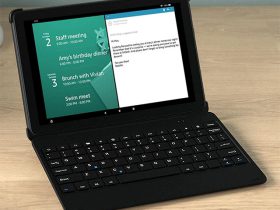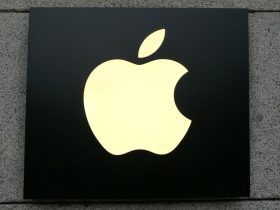Between the anti-vaxxers taking horse drugs to struggle COVID-19 and Trump supporters nonetheless pushing The Large Lie, the struggle to curb on-line misinformation could really feel hopeless at instances.
A brand new research by researchers at MIT could also be a small ray of sunshine we will actually use proper now: Many individuals truly do have a reasonably good bullshit detector on the subject of on-line misinformation.
The research, titled “Scaling up Reality-Checking Utilizing the Knowledge of Crowds,” has discovered that crowdsourced fact-checking for accuracy from common, on a regular basis information readers stacks as much as the work carried out by skilled fact-checkers.
Or, as MIT is placing it, crowds can “clever up” to pretend information.
For the research, MIT researchers employed 1,128 U.S. residents utilizing Amazon’s Mechanical Turk, which is the ecommerce large’s market platform the place customers can rent on-line gig staff for odd jobs and menial duties.
Researchers then introduced the members with 20 headlines and lead sentences from 207 information articles that Fb had flagged for fact-checking by way of its algorithm. Individuals have been requested questions with a purpose to create an accuracy rating for every story, associated to how a lot of the information merchandise was “correct,” “true,” “dependable,” “reliable,” “goal,” “unbiased,” and “describing an occasion that truly occurred.”
The tales have been picked out by Fb for quite a lot of causes. Some have been flagged for doable misinformation, others popped on the radar as a result of they have been receiving plenty of shares, or they have been about delicate well being matters.
Researchers additionally sport the identical flagged tales to a few skilled fact-checkers.
The professional fact-checkers did not even all the time align with one another. All three fact-checkers agreed on the accuracy of a information story in 49 p.c of circumstances. Two fact-checkers agreed on round 42 p.c. In 9 p.c of the circumstances, all three had disagreed on the scores.
Nonetheless, the research discovered that once they broke the traditional readers into teams of 12 to twenty information readers and adjusted the make-up to even out the variety of Democrats and Republicans in every, the laypeople’s accuracy scores correlated with the fact-checkers.
“One downside with fact-checking is that there’s simply means an excessive amount of content material for skilled fact-checkers to have the ability to cowl,” says the co-author of a paper detailing the research, Jennifer Allen, who can also be a PhD pupil on the MIT Sloan College of Administration. “The common ranking of a crowd of 10 to fifteen individuals correlated as nicely with the fact-checkers’ judgments because the fact-checkers correlated with one another. This helps with the scalability downside as a result of these raters have been common individuals with out fact-checking coaching, and so they simply learn the headlines and lead sentences with out spending the time to do any analysis.”
“We discovered it to be encouraging,” she stated.
In response to the research, the estimated value of readers evaluating information on this method round $0.90 per story.
Individuals who took half within the research additionally participated in “a political data take a look at and a take a look at of their tendency to suppose analytically.” Those that scored nicely in these exams positioned most alongside the fact-checkers’ accuracy scores. General, the scores of people that have been higher knowledgeable about civic points and engaged in additional analytical pondering have been extra carefully aligned with the fact-checkers.
Mainstream social media platforms have just lately dabbled in crowdsourced fact-checking. Twitter, for instance, launched Birdwatch initially of the yr. This system permits customers so as to add contextual data to tweets that could possibly be deceptive or doubtlessly unfold misinformation.
The research is constructive information within the sense that on a regular basis newsreaders seem to have the ability to, largely, suss out misinformation. Nonetheless, at scale, one must actually think about dangerous actors intentionally making an attempt to substantiate or perpetuate deceptive data.
“There’s nobody factor that solves the issue of false information on-line,” says MIT Sloan occupation and senior co-author of the research, David Rand. “However we’re working so as to add promising approaches to the anti-misinformation software equipment.”








